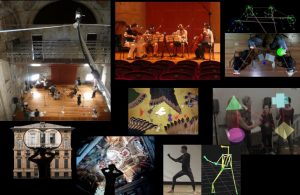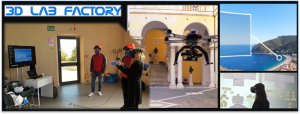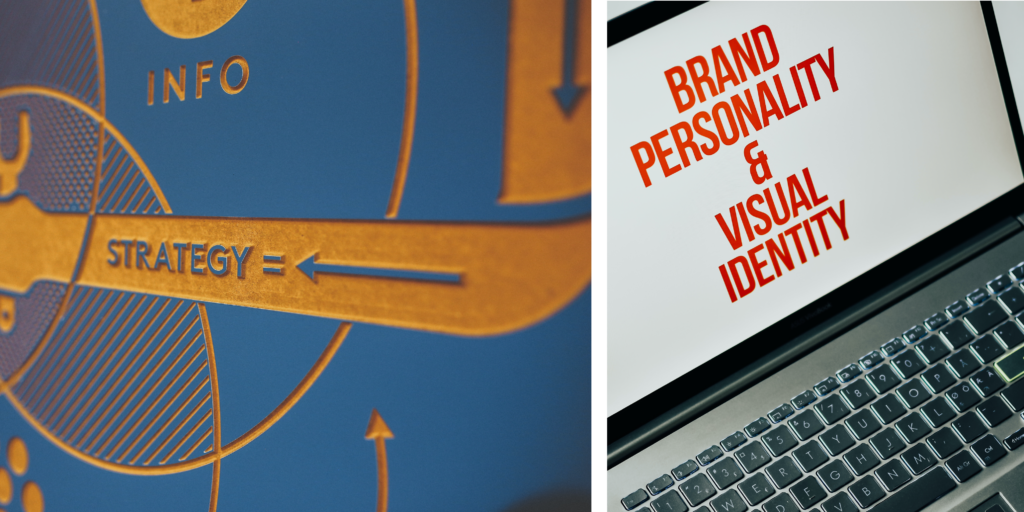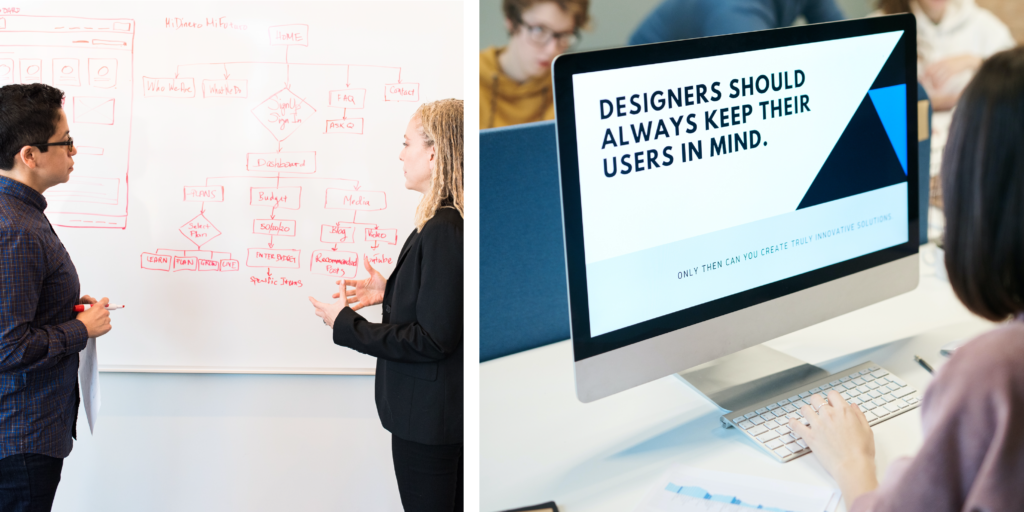Affective Computing, Arts and Cultural Welfare (ACW)
International Track
Affective Computing, Arts, and Cultural Welfare (ACW) is the international track of the
Master’s degree in Digital Humanities – Interactive systems and digital media at the University of Genova
Polytechnic School
Polytechnic School
Language: English – Location: Genoa
Official website: https://courses.unige.it/11945
DEADLINES: https://unige.it/en/international-enrolment
WHAT IS THE ACW TRACK ABOUT?
A profound transformation is undergoing in contemporary society and digital technology: interactive multimedia applications and services are moving away from the screen, involve our everyday activities with a multitude of interfaces and technologies: motion tracking, Internet of Things, wearables (e.g., smartwatches), mobiles (e.g., smartphones, tablets), virtual and augmented reality interfaces, tangible and physical interfaces, until the recently proposed metaverse are engaging users’ bodies and surrounding physical and virtual environments.
Such emerging technologies are pushing a disruptive change of paradigm in the design of interactive digital tools and services, involving the users to engage in full-body, physical, emotional, social, and aesthetically resonant experiences. Successful interactive systems must create a smooth, intimate correspondence between users’ individual as well as joint actions and system response.
This change of paradigm requires new professionals and researchers in a trans-disciplinary approach: Affective Computing, Arts and Cultural Welfare is the international track of the Master’s degree in Digital Humanities aiming to shape the needed new professionals and researchers capable to manage the design and development process of such novel interactive digital tools and services. These professionals and researchers will be capable to integrate theories and techniques from computer science and engineering (including human-computer interaction and artificial intelligence), cognitive sciences, experimental psychology, emotion, health and movement science, cultural heritage, performing and visual arts, aesthetics.
The Track on Affective Computing, Arts and Cultural Welfare will benefit from the intense experimental and applicative international projects of the Casa Paganini-InfoMus Research Centre of the University of Genoa, with its premise and technology infrastructure including industry standard motion capture systems: e.g. a 20-camera Qualisys motion capture system, a number of wearable and environmental sensor systems for real-time movement and behavior analysis, audio and 3D sound equipment, and the unique museum and lab rooms in its monumental building of S.Maria delle Grazie la Nuova, enabling the simulation of museum exhibits as well as of artistic performances. Specific workshops will address case studies in the areas of cultural heritage, artistic experience, well-being and social inclusion, involving students in international projects.
Furthermore, the collaboration with several important national as well as international institutions, including museums, artistic institutions, hospital labs, startup incubators, and industry partners will enable the students to put into practice and consolidate their skills in internships and master theses.
 Lectures and laboratory activities are mainly held at Casa Paganini-InfoMus Research Centre
Lectures and laboratory activities are mainly held at Casa Paganini-InfoMus Research Centre
A summary of the activities is available in this presentation 
Extended reality and immersive systems laboratory at Savona Campus
WHAT WILL I DO?
Sarah is in Genova today and has decided to visit the city center. She wears her augmented reality glasses, walks down via Garibaldi, and looks at the beautiful historical buildings on both sides of the street. She focuses on one of the buildings and wants to look inside. Immediately, her glasses display a gorgeous room in the building. She can even see all the details of the frescos that cover the room’s ceiling! After some hours of sightseeing, Sarah’s walking movements start becoming less fluid and heavier. A message on the glasses indicates some good places around where she can have a traditional Genoese lunch and rest!
This is an example of an immersive multisensory experience mediated by technology. The ACW program aims to train professionals and researchers to design, set up, and evaluate experiences like this. Specialists in this area know how to shape the experience by putting together suitable technologies and appropriate multimedia content in a way that is optimal for the capabilities of the users, including users with special needs. They know how to make innovative technology solutions tailored to the needs of the humans who will use them. They know how to build computer systems that can capture, analyze, and interpret the behavior of their users (e.g., postures, movements, gestures, facial expressions, and speech), even their emotions, and produce responses by multiple means (e.g., pictures, videos, sounds, and messages). They know how to employ advanced techniques for immersive environments, virtual and augmented reality, and artificial intelligence. In summary, they know how to use technology to make an experience effective, compelling, and inclusive.
WHAT WILL I LEARN?
- How to design an immersive multisensory experience: identify the potential users and their tasks, analyze and understand their needs, develop their interaction with technology, and produce adequate narratives to organize such an exchange. Topics include understanding human perception, cognition, and emotion, interaction and user experience design, visual and multisensory narrativity, and gamification.
- The devices that can be used to make immersive multisensory experiences, how they work, and how they can be employed. Devices include, for example, professional motion capture systems, wearable technologies, immersive mixed and virtual reality systems, and 3D audio technologies.
- The major software components that are needed to build a computer system for immersive multisensory experiences and the techniques employed to make them, how to put together such components depending on the task to be performed and the classes of users, how to install and evaluate such technologies in a real-world context. Topics include video and audio analysis and processing techniques, computational approaches to analyzing human behavior, computational approaches to analyzing cognitive and emotional states, techniques for immersive environments, and artificial intelligence.
- How to make multisensory content to support an immersive multisensory experience. Topics include understanding media and performing arts, visual design, sound design, techniques and tools for image and video processing, and techniques and tools for sound and music computing.
And more! Teaching will combine lectures with practical experience. Specific workshops will address real-world case studies in cultural heritage, artistic experience, well-being, and social inclusion. Students will be involved in international projects.
HOW DO I ENROLL?
You can do it online. To know the deadlines and get more information, here is the link:
https://unige.it/en/international-enrolment
Students need, however, to satisfy at least one of these requirements:
- You are an international or an Italian student, and you own a bachelor’s degree in computing, e.g., Computer Science or Computer Engineering.
- You are an international or an Italian student, you own an interdisciplinary bachelor’s degree, such as Human-Computer Interaction, Digital Media Arts, Performance Science, or Cognitive Neuroscience, and you earned at least 18 ECTF (or equivalent) in Computer Science or Computer Engineering.
- You are an Italian student, and you own a bachelor’s degree in the Arts, Humanities, Cognitive Sciences, and Design.
Detailed requirements are available on the official website.
If you meet requirements, a committee will review your application and check whether you can be admitted to the master’s degree. In this process, you may be interviewed by the admission committee.
For all students: the teaching language is English, so you should hold an English B2-level certification.
- Admitted students with a bachelor in Computing or at least 18 ECTS in computing will have to enroll in PATH1
- The other admitted students will have to enroll in PATH2
AFTER GRADUATING, WHICH WILL BE MY JOB?
This master’s degree opens several professional avenues in existing and emerging directions. These include, but are not limited, to the following ones:
- Expert of interaction design: specialist in the interaction of users with technology in several application areas including cultural and creative applications and services, health, sport, well-being, rehabilitation, and education. Moreover, these experts also make interaction inclusive and adaptive for users with special needs.
- Audience engagement specialist: expert designer of multisensory and active experiences, e.g., in museums, touristic areas, archeological areas, science centers, and so on.
- Immersive game designer: specialist of game design with focus on immersive environments where players are involved in full-body interaction.
- Designer of training applications: specialist of interactive and immersive experiences for training users in specific tasks and roles, e.g., in sport and in the performing arts or in simulation environments, e.g., for simulating tasks in dangerous or critical environments.
- Designer of well-being applications: specialist of interactive and immersive experiences for supporting and promoting users’ health and well-being, e.g., for fitness exercises, gym practice, and rehabilitation sessions.
- Sound designer: an expert of the use of sound for interaction with objects and environments. For example, one aspect affecting the quality of urban life is sound. Analogous to visual city planning, the sound of existing spaces can be planned to improve quality of life.
- Specialist in technologies for the performing arts: an expert who supports composers, choreographers, movie directors, and artists in the design and use of technology for their artworks, and in their conception. These specialists also design the experience (possibly active, immersive, and distributed over time and space) of the audience with the performance.
- Media makers: creators of multimedia content for customers active engagement and interactive digital signage, e.g., for commercial, health, social, and video-on-demand (e.g., OTT – over-the-top) services and
- Design of phygital, mixed-reaality applications and services, involving full-body emotional and social experiences (e.g., metaverse)
- DCO (dynamic creative optimization) in advertising, exploiting interaction design techniques and interactive multimedia technology: iterative approach for the design of a commercial ad, tailoring parts of the ad based on audiences (user analysis), context (domain analysis), also exploiting theories and techniques from the arts (visual arts, music, theatre, dance), to contribute the ad resonate with consumers.
- Contribute to the design process of Transmedia storytelling / transmedia narrative / multiplatform storytelling: use techniques of telling a single story or story experience across multiple platforms and formats using current digital/phygital technologies.
Students will be given the opportunity of participating in initiatives of simulation of start-up incubation and in start-up contests.
TABLE OF TOPICS 2025-27
1st YEAR |
|
| PATH 1 (for students holding at least 18 ECTS in computing) International track | PATH2 (for students not holding at least 18 ECTS in computing) |
|
12 ECTS – VISUAL NARRATIVITY
|
12 ECTS – ICT & CODING ( Lang. Italian) to be chosen from the following exams
|
| 6 ECTS – MACHINE LEARNING AND DEEP LEARNING | Note: in Path 2, the corresponding exam in Artificial Intelligence for the Digital Humanities is in the 2nd year, as it requires competencies acquired during the 1st year. |
|
6 ECTS – HUMAN-COMPUTER INTERACTION |
|
| 6 ECTS – RESEARCH METHODS IN SOCIAL SCIENCE | |
|
12 ECTS – MULTIMEDIA PROCESSING
|
|
| 6 ECTS – MULTIMODAL NARRATIVES | |
| 6 ECTS – DATA SEMANTICS FOR ARTS | |
| 6 ECTS – PSYCHOLOGY OF PERCEPTION | |
| Note: in Path1, free exams of the student’s choice are in the 2nd year | 6 ECTS – FREE EXAMS OF THE STUDENT’S CHOICE |
2nd YEAR |
|
| – | 6 ECTS – INTELLIGENZA ARTIFICIALE PER LE DIGITAL HUMANITIES |
|
6 ECTS – IMMERSIVE AND EXTENDED REALITY |
|
| 6 ECTS – AFFECTIVE COMPUTING | |
|
18 ECTS – CULTURAL WELFARE TECHNOLOGIES
|
|
|
6 ECTS – FURTHER SKILLS AND ACTIVIVITIES from the following
|
|
| 12 ECTS – FREE EXAMS OF THE STUDENT’S CHOICE | 6 ECTS – FREE EXAMS OF THE STUDENT’S CHOICE, recommended:
|
| 12 ECTS – MASTER THESIS | |



